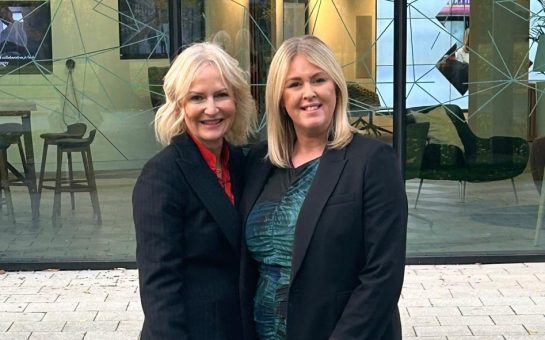The tiny French Polynesian island of Tahiti, situated half-way between Australia and South America, is about as remote as a country can be.
It has 180,000 inhabitants who were all glued to their TV screens this summer watching in pride as their national football team competed in FIFA’s Confederations Cup.
Tahiti lined up against some of the footballing world’s most illustrious nations – of the eight teams who participated in the tournament there were four teams who had won a combined 12 out of 19 World Cups.
Tahiti lost all three of their matches in the tournament conceding 24 goals and scoring just one.
Despite the losses, the tiny nation’s participation in the tournament highlighted the enduring popularity and global reach of football.
However, while football may be the most popular sport in the world and has spread to the most far-flung places there are still pockets of resistance that have not capitulated to its power.
South Asia is one such region. In countries such as India, Pakistan, and Bangladesh football is an afterthought and cricket is king.
As Britain’s Asian population has grown over the decades football has become embedded in a cricket dominated culture. The sport is now hugely popular in Asian communities but, despite its growth, many Asians struggle to pursue a footballing career.
According to the 2011 census, there are 3.8million Asians in the UK yet only five Asians have made it to the football leagues as professionals.
Zeshan Rehman, who made 21 Premier League appearances for Fulham between 2004 and 2006, told MM that the stereotypes and prejudices of coaches make it difficult to breakthrough, not racism.
When he was just 10 years old he was told by an FA coach that he would not make it because he had the ‘wrong diet’.
These stereotypes are endemic throughout grassroots football and Aman Verma, a British Indian who has played for a host of English clubs, believes they restrict the progression of British Asians in football.
“I’ve experienced every stereotype there is I think. It could be a reason why someone might not get an opportunity,” he said.
Rehman set up a foundation in 2010 to inspire British Asians to enter the footballing world. The foundation offers both males and females the opportunity to further their footballing careers in a variety of different ways from playing and coaching to administration and media.
Riz Rehman, operations manager at the foundation, said: “The only reason many parents do not support this career choice is because they do not know the path that their children will take.”
Within Asian communities there are culturally embedded views that promote the pursuit of academic careers above sporting ones. However, with so much sports coverage in the UK, some parents are now encouraging their children to get more involved in sports.
As well as educating and inspiring young Asians, the Rehman foundation also educates parents on footballing careers, showing them the paths available for their children.
“My family have always backed me in whatever I have chosen to do. With football, they supported me from the side-lines since I was 6,” said Verma.
“However, Asian parents may not support their children as they do not know the game.”
Simone Pound, head of equalities at the PFA, told MM: “Parental support is key for all children’s success and the majority of British born Asian parents are 2nd, 3rd generation now and support their children’s future goals and ambitions.”
A lack of parental support for youngsters is also underpinned by a lack of Asian role models in the footballing world.
“There are only a few Asians that play professionally or are at a decent level right now, there are in turn, less role models,” said 26-year-old Verma.
“I may be seen as a role model for locals in Leicester. But if there was an Asian in the Premier League, then it would encourage loads of Asians everywhere.”
This is an issue the The Rehman Foundation is seeking to address by trying to find role models from within Asian communities.
“Young lads in the Asian communities can be role models to the younger ones,” Riz said.
The notion that an Asian role model can inspire young Asians to pursue a career in the sport is backed up by looking at the impact Amir Khan has had on the number of young Asians taking up boxing since he burst onto the scene in 2004 aged just 17.
Khan won a silver medal at the 2004 Athens Olympics and his former business advisor Asif Vali spoke to MM about the impact Khan has had on Boxing in British Asian communities.
“Amir Khan made a huge impact on the representation of Asians in boxing,” he said.
“Ten years ago you would maybe just find one Asian involved in boxing gyms, and now you find at least a third are Asian amateur boxers.”
“We need a UK born Premiership player to play at the highest level for one of the top six teams to make a difference.”
However, Vali believes that, at present, Asian footballers are not given the same opportunities as others in the UK.
“Although Asians can break through in cricket, boxing, snooker, darts and other sports, they may not be able to break through football. They have the talent but they are not being given the chance or break to reach the higher levels,” he said.
As well as trying to develop players, the foundation also provides opportunities to young Asians to enter the football world as coaches.
“We need more Asian coaches who can train the young kids, teaching them essential footballing skills and qualities,” Riz Rehman said.
The Rehman Foundation receives funding from the Premier League and the PFA which has allowed for the introduction of a project called SIDELINED-2-SIDELINES. The project aims to introduce more Black Asian Minority Ethnic (BAME) coaches in order to inspire minorities to get into the game.
Some of the coaches from this project have joined league clubs, including QPR and Crystal Palace. These coaches help to raise awareness to non-Asian coaches and staff working at clubs about the Asian culture which can act as a barrier between Asians and football.
Culturally, the lifestyle of a footballer may not match the lifestyle of Asians. The lifestyle of a footballer is stereotypically associated with girls, partying and cars.
“I think there aren’t many Asians because for years there hasn’t been much of an understanding of our culture until recently” Aman Verma said.
To overcome these cultural and religious barriers the Rehman Foundation gives professional courses to football scouts and coaches on Islam and its practices.
One of the major obstacles that both the PFA and the Foundation are seeking to eradicate is the segregation that is in place at grass-roots level.
Asians are being told that if they want to make a mark in the game then they have to stop playing community based football and integrate with people from other backgrounds.
“Many Asians who play football play in Asian only leagues and tournaments. They need to play more mainstream football so they are visible to scouts,” Riz said.
Asif Vali added: “Asian people have a culture of sticking together. Good players need to play in the higher levels and not stick to amateur football.”
The emphasis on integration is echoed through all levels of the game.
Simone Pound added “the PFA are working to increase the representation of BAME groups across the board.
“Football is an inclusive industry and is used as a tool to educate and inspire others around diversity.”
Image courtesy of Matthew King via YouTube, with thanks
For more on this story and many others, follow Mancunian Matters on Twitter and Facebook.



